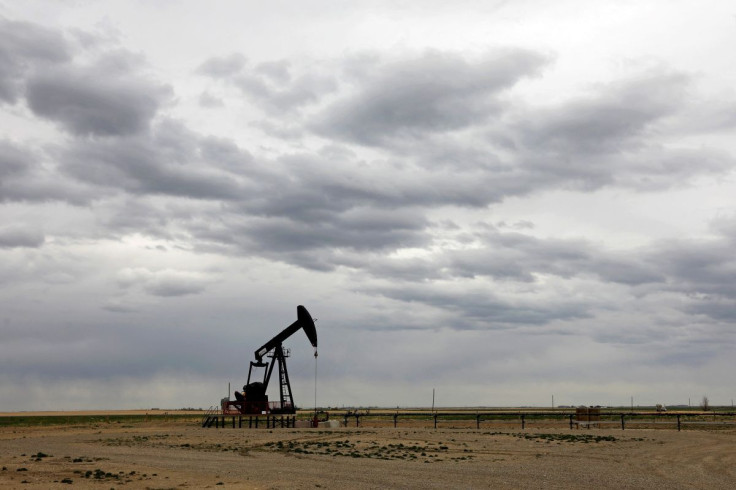Oil Dives 4%, Below $100 On Reserves Release, China Lockdowns

Oil prices fell about 4% on Monday, with Brent crude tumbling below $100 a barrel on plans to release record volumes of crude and oil products from strategic stocks and on continuing coronavirus lockdowns in China.
Brent futures fell $3.82, or 3.7%, to $98.96 a barrel by 11:44 a.m. EDT (1544 GMT). U.S. West Texas Intermediate (WTI) crude fell $3.50, or 3.6%, to $94.76.
WTI was on track for its lowest close since Feb. 25, the day after Russian forces invaded Ukraine, an action Moscow calls a "special military operation."
Brent was on track for its lowest close since March 16.
To offset a shortfall in Russian crude after Moscow was hit with sanctions, International Energy Agency (IEA) member nations will release 60 million barrels over the next six months in addition to the 180 million barrels the United States said it would release.
"The release of strategic government oil reserves should ease some market tightness over the coming months, reducing the need for oil prices to rise to trigger near-term demand destruction," said UBS analyst Giovanni Staunovo.
Bank of America maintained its forecast for Brent crude to average $102 a barrel for 2022-23. Swiss investment bank UBS also lowered its June Brent forecast by $10 to $115 a barrel.
The release of Strategic Petroleum Reserve (SPR) volumes equals 1.3 million barrels per day (bpd) over the next six months, enough to offset a shortfall of 1 million bpd of Russian oil supply, JP Morgan analysts said.
Those SPR releases could bring WTI prices for near-term delivery below those for longer-dated contracts, said Robert Yawger, executive director of energy futures at Mizuho. When prices for front months are lower than for future months, the market is in contango. In contrast, in early March, the WTI curve in what Yawger called "super-backwardation" with each month at least $1 a barrel below the prior month through November 2023.
Also pressuring crude prices, the U.S. dollar was on track to strengthen for an eighth straight day against a basket of other currencies. A stronger dollar makes oil more expensive for holders of other currencies.
The market has also been watching developments in China, where authorities have kept Shanghai, a city of 26 million people, locked down under its "zero tolerance" policy for COVID-19.
Ukrainian President Volodymyr Zelenskiy said thousands of Russian troops were massing for a new offensive in the east, and Russia said it would not halt its military operation in Ukraine for further peace talks.
The European Union's (EU) executive is drafting proposals for a possible EU oil embargo on Russia, the foreign ministers of Ireland, Lithuania and the Netherlands said, though there is still no agreement to ban Russian crude.
Japan's government has asked power companies to top up their liquefied natural gas (LNG) reserves and share energy resources, a person familiar with the contingency plan said, as civilian deaths in Ukraine push Tokyo to halt Russian fuel imports.
© Copyright Thomson Reuters {{Year}}. All rights reserved.





















